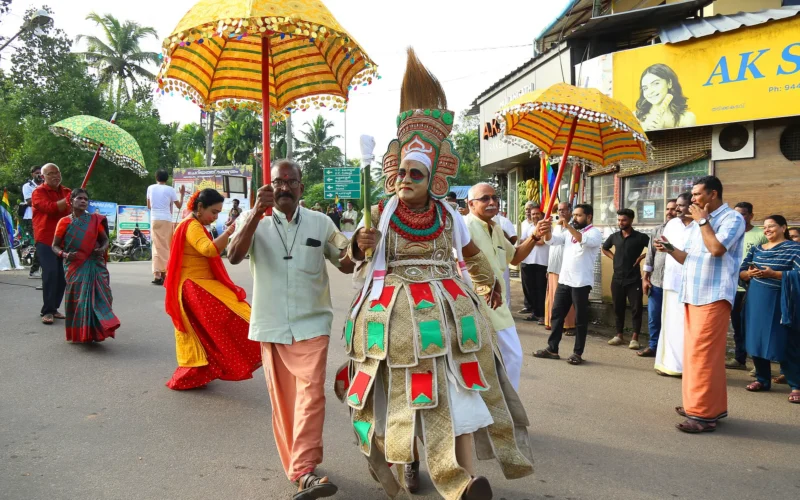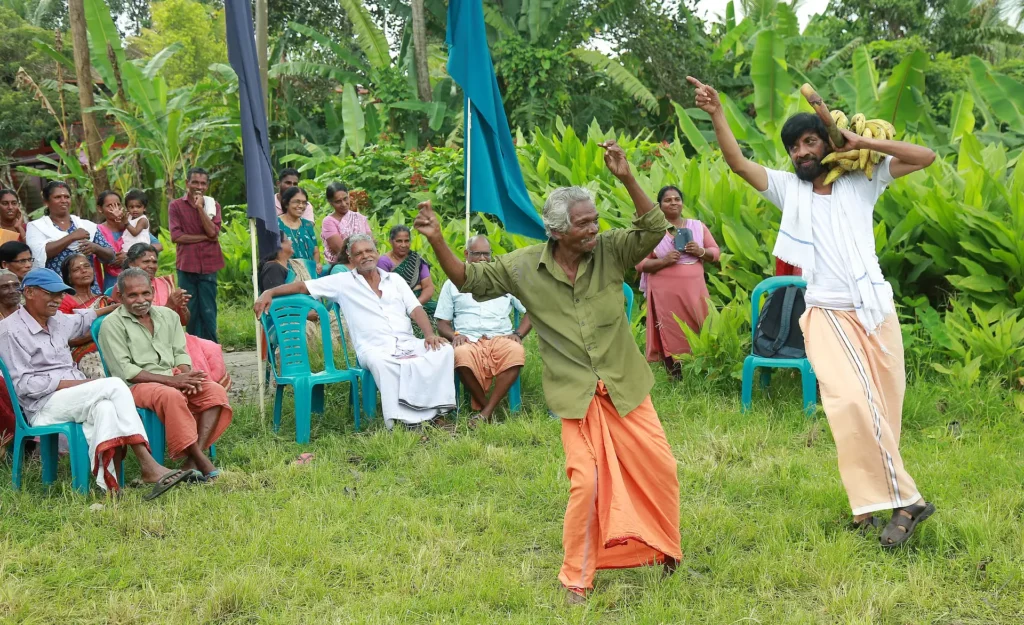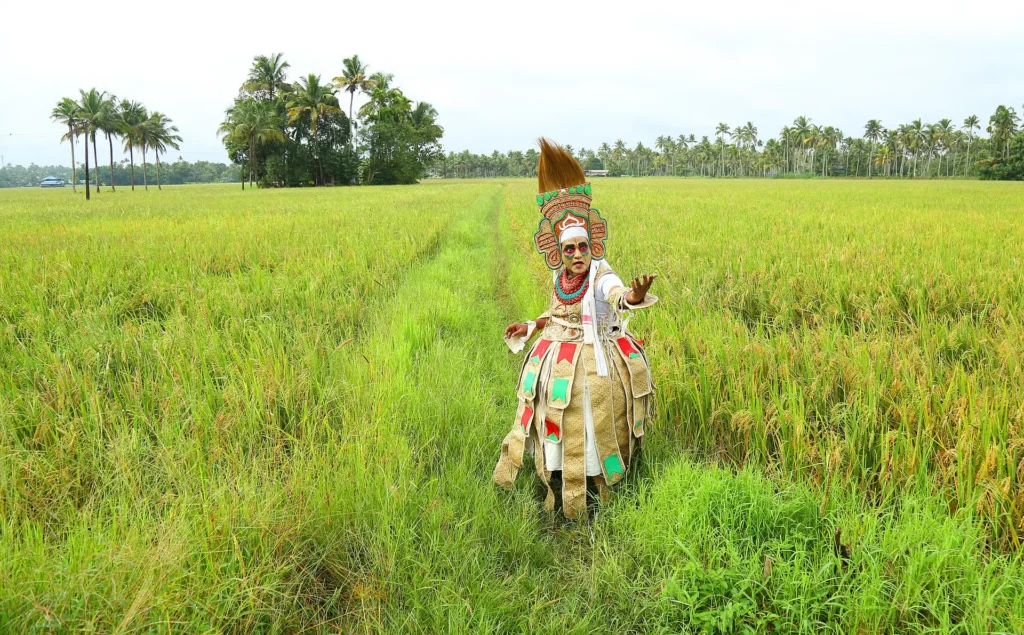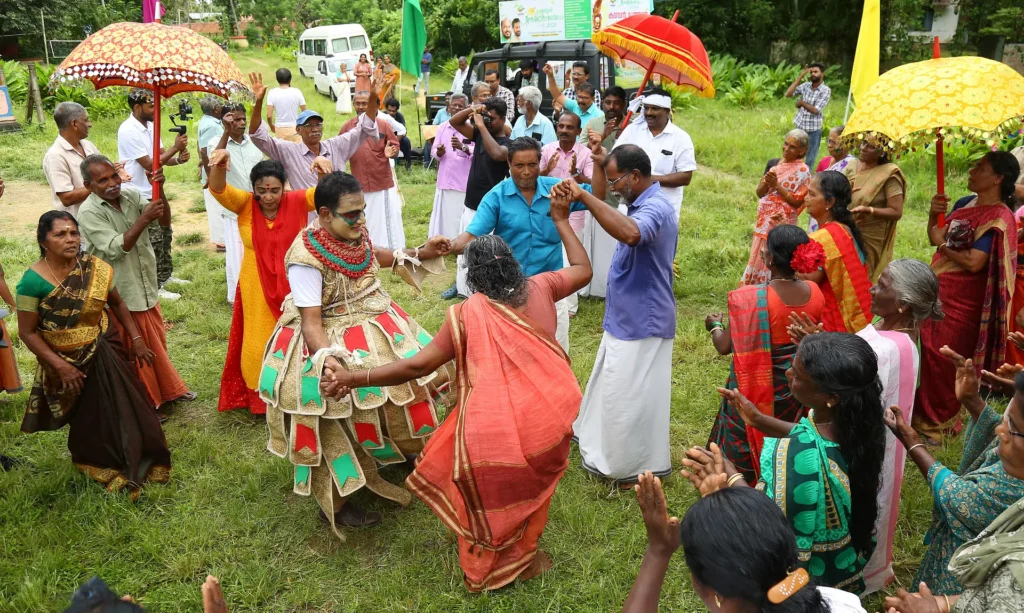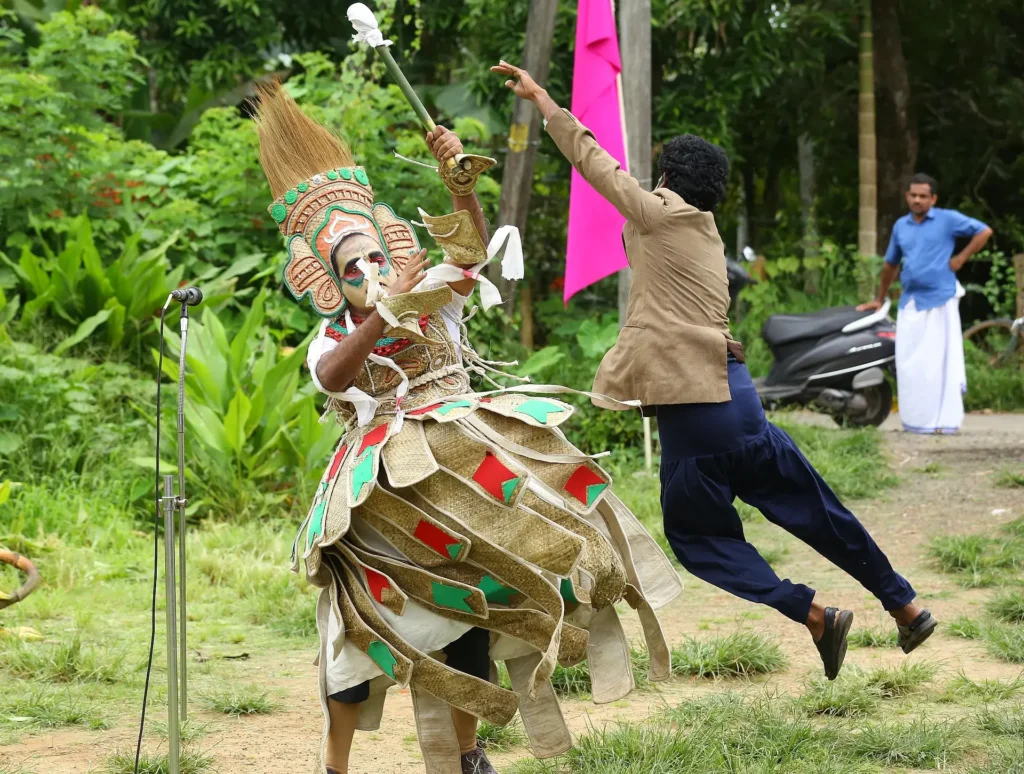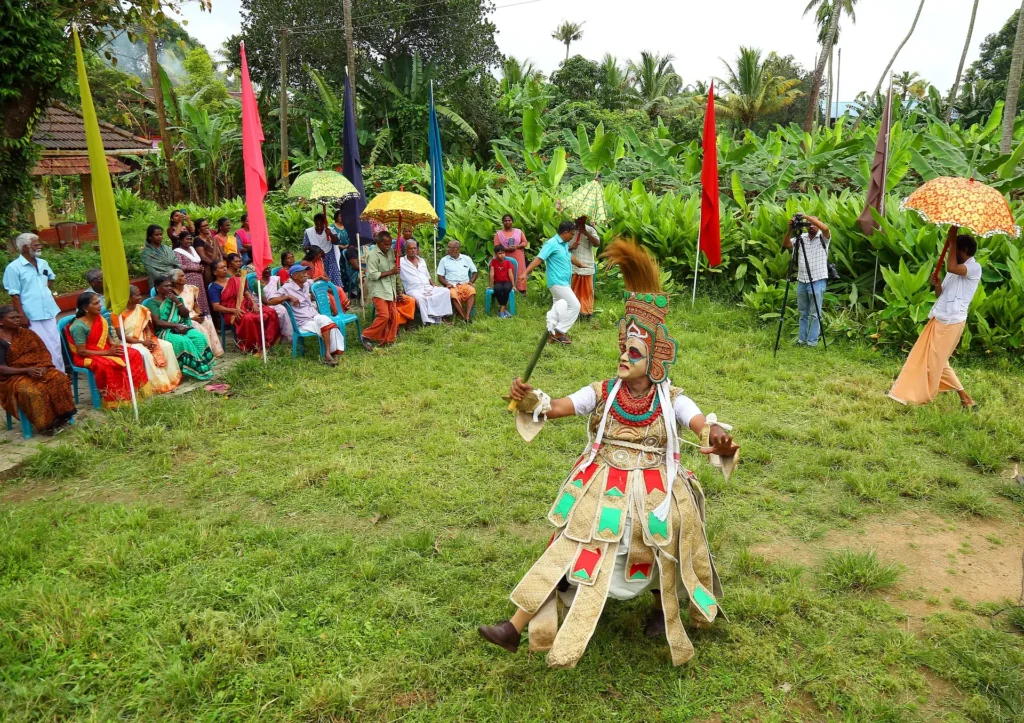At dawn in Veliyathunadu, about 15 kilometres from bustling Kalamassery town, farmers and villagers gathered in anticipation. Tea stalls filled with chatter, children ran across fields, and elders leaned on walking sticks, their eyes fixed on the horizon. They were waiting for Kadamban Moothan—a figure both mythical and deeply rooted in the soil they till.
Soon enough, the atmosphere shifted. A breeze swept through the paddy fields, birds cried out in chorus, and the sun’s orangish glow announced the arrival of the dancing deity. From a distance, he emerged—cheerful, spirited, and larger than life.
A Deity Born of the Soil
Kadamban Moothan is no temple idol. He is a fictional agrarian deity, the creation of Organic Theatre, a Thiruvananthapuram-based collective led by theatre artist S. N. Sudheer. Draped in regalia made of dried grass, woven mats, and sackcloth, with a straw crown rising above his head, Moothan represents the richness of Kerala’s farmlands. His face, painted green and golden yellow, mirrors the colours of thriving paddy fields and harvest-ready crops.
For the farmers of Veliyathunadu, Moothan is more than a performer. He is a reminder of the golden days of agriculture, when communities lived in harmony with the soil. “The name comes from the idea of a guiding elder who helps us cross kadambakal—the hurdles of life,” explains Sudheer, wiping sweat after the spirited morning performance.
The Story Unfolds
The play that unfolded at Veliyathunadu was not just entertainment but a moral tale. At its heart was a farmer, his daughter, and the ever-present villain Idamthalan—a character who embodies greed and selfishness. Idamthalan schemes to uproot the farmer’s family, severing their connection with the land. Just as despair sets in, Moothan enters, dancing his way to victory, vanquishing greed, and restoring the sanctity of soil.
“Idamthalan is not just on stage,” said Sanatha, who played the farmer’s daughter. “He exists within us—in the part of our mind that makes us greedy and forget our roots.”
The performance was raw yet professional. Despite honking traffic and the chaos of a busy junction, the actors performed with conviction, their voices rising above the din, their movements pulling the crowd into the rhythm of farming life.
Breaking Barriers
One of the striking features of Moothan’s presence is inclusivity. “Anyone can be Moothan,” said Sudheer. “It doesn’t matter who you are—caste, religion, gender are no barriers. If you’re willing to stand barefoot on this soil, you can wear the crown.”
This year, Mani, a tribal woman from Amboori in Thiruvananthapuram, joined the troupe. She played multiple roles—the palm reader, the elderly village woman, and the joyous dancer. “I come from a tribal hamlet in the Agasthyakoodam valley,” she said, beaming as villagers lined up for selfies. “Performing here makes me feel proud that our stories still matter.”
Farming Roots and Future Hopes
Veliyathunadu, where the performance took place, has long been a farming stronghold. Known for mushroom farming alongside traditional crops like paddy, elephant yam, tapioca, spinach, and snap melon, the village has embraced modern methods while holding onto its agrarian identity.
For Vijayan M. P., coordinator of Krishikkoppam Kalamassery, the play is more than theatre. “The goal is self-reliance,” he said. “A self-sufficient Kalamassery that produces its own vegetables and always stays rooted in agriculture.”
The message resonated with the crowd. Moothan’s dance was not just about joy but also a cautionary tale against unchecked greed and the loss of connection to the earth.
A Journey Beyond One Village
This was the fourth time Kadamban Moothan had visited Kalamassery. His journey, however, spans across Kerala, from Thiruvananthapuram to Idukki and beyond. Wherever he goes, he leaves behind an echo—a call to respect the land, love the soil, and honour the farming traditions that sustain life.
At Kunnukara, Moothan carried plantains on his shoulder and pagoda flowers in his palm as he continued his journey. “Celebrate your success, but resist greedful temptations,” he called out to the villagers, who danced and sang alongside him.
The Spirit of the Soil
What makes Kadamban Moothan extraordinary is not just the costume, the dance, or the drama—it is the message he embodies. In an era when cities are expanding and farmlands shrinking, Moothan serves as a reminder: progress should not come at the cost of soil, sustainability, and self-reliance.
As the villagers of Veliyathunadu bid farewell to their beloved deity, the message lingered in the air—we are all, after all, children of Mother Earth.

